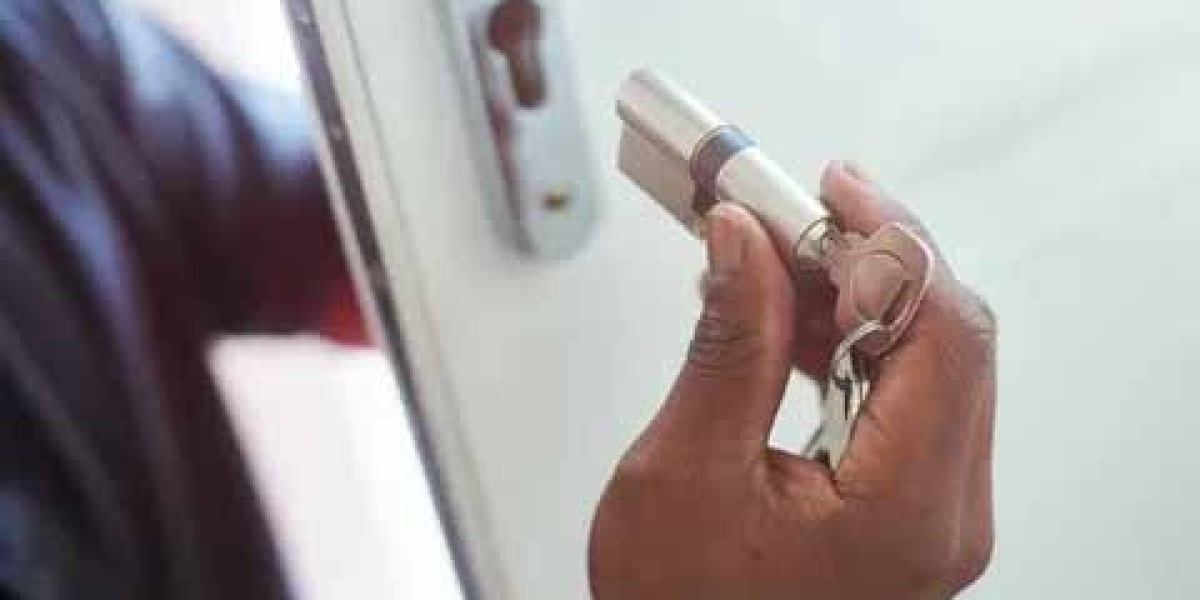In the world of home security, every decision carries weight—not just in how safe it keeps you, but also in how much it costs you. One of the most overlooked yet incredibly practical choices homeowners and business owners face is whether to replace a lock entirely or simply rekey it. Many go straight to the idea of replacing locks when moving into a new home, experiencing a break-in, or managing rental properties, without realizing that there is often a smarter, cheaper, and just as effective option available: rekeying.
Understanding the Basics – What Does It Mean to Rekey?
Before diving into the financial benefits, it’s important to understand what rekeying actually is. Rekeying a lock means altering the mechanism inside the lock cylinder so that the old key will no longer work, and a new key will be required to open it. The process involves replacing the key pins inside the lock with new ones that match the cuts on the new key. No need to change the entire hardware—just the internal configuration.
This service can be done on most types of locks, including deadbolts, knob locks, lever locks, and even some high-security systems. It’s typically performed by a locksmith and takes far less time than a full replacement. More importantly, it costs significantly less.
Why People Default to Replacing Locks
Replacing locks sounds like the definitive way to upgrade security. That’s why many homeowners opt for it first, especially in emotionally charged situations like moving into a new home after a divorce, a breakup, or a burglary. The idea of starting fresh often feels right.
There’s also a psychological sense of safety when you see a brand-new lock installed—shiny, untouched, and presumably unbreached. But here’s the kicker: unless the old lock is broken, malfunctioning, or outdated in design, replacing it might not actually improve your security. You're often paying for the hardware, the installation, and the time—all of which add up fast.
Rekeying, on the other hand, can give you that same peace of mind at a fraction of the cost. And if done by a skilled locksmith, it’s just as effective in keeping intruders out and giving you a clean slate.
The Cost Difference: A Real Game-Changer
Let’s put numbers into perspective. A new lockset can cost anywhere from $30 to $250, depending on the brand and security level, not including labor. And if you’re replacing multiple locks on your property—which is common so all doors match one key—you’re looking at a bill that easily hits a few hundred dollars or more.
Rekeying, however, typically costs between $15 and $50 per lock, and many locksmiths offer discounted rates for multiple locks. If you’re rekeying three doors, you might be done under $100. That’s serious savings, especially if you're on a budget or managing multiple rental properties.
When Rekeying Makes the Most Sense
There are several scenarios where rekeying is not just a good idea—it’s the best idea:
Just Moved In: If you've just bought a house, you never really know how many copies of the keys are out there. Rekeying ensures you have full control without investing in all new hardware.
Lost Your Keys: If your keys are lost or stolen and you're worried about someone using them, rekeying locks makes the old key useless—problem solved.
Changing Tenants: Landlords should always rekey between tenants to protect the new occupant and avoid legal liability. It’s a low-cost way to offer high peace of mind.
After a Break-In: If the lock wasn’t damaged but you’re worried someone has a copy, rekeying offers a fast and secure solution without replacing all your doors’ locks.
Desire for a Master Key System: If you're tired of carrying different keys for every door, a locksmith can rekey all locks to work with a single master key, adding convenience without extra cost.
When Should You Replace Instead?
Now, rekeying is brilliant, but it’s not always the right call. There are some situations where replacing the entire lock system is the smarter or even necessary move:
Damaged or Worn Locks: If the lock is malfunctioning, rusted, or simply outdated in design, replacing it can improve security and functionality.
Upgrading Security: If you're still using basic locks from the '90s and want to install smart locks, keypads, or deadbolts with advanced features, then replacing is the way to go.
Mismatched Hardware: If you’re updating the aesthetics of your doors or interior, and want all locks and knobs to match in style or finish, you might opt for new hardware.
Even in these cases, a professional locksmith can advise whether part of the system can be rekeyed to keep costs down.
The Hidden Perks of Rekeying
Beyond the savings, rekeying comes with some sneaky benefits:
Single Key Access: If your front, back, and garage doors all use different keys, you can ask your locksmith to rekey them to one key for ultimate simplicity.
Faster Turnaround: Rekeying takes less time than full lock replacement. In emergencies, speed matters.
Environmental Impact: Replacing locks creates waste. Rekeying is a more sustainable choice that reduces landfill contribution.
Security Reset: If you suspect someone unauthorized has a key, rekeying gives you the upper hand quickly and discreetly.
DIY vs. Professional Help – What's Better?
There are DIY rekeying kits available for popular lock brands, and if you’re a handy person with time and patience, it’s a feasible weekend project. However, for the average person, hiring a locksmith is still the best bet. Locksmiths have the tools and expertise to do the job efficiently and correctly. Plus, a pro can identify potential security gaps you might miss—like misaligned strike plates or weak door frames.
If security is your priority (and it should be), leaving it to a professional is a small investment for a big payoff in peace of mind.
Don’t Be Fooled by Lock Myths
Let’s clear up some common misconceptions:
“Rekeying is less secure than replacing.” Not true. Security depends on the lock type and the skill of the locksmith. Rekeying offers equal protection as long as the hardware is solid.
“All locks can’t be rekeyed.” Most can. Unless it’s an old or off-brand lock without replaceable parts, chances are your lock is rekeyable.
“It’s just cheaper to change the lock myself.” DIY might save on labor, but not if you mess it up. Plus, cheaper locks often mean lower security.
Final Thought
In the end, security is about being smart, not just spending big. Rekeying your locks instead of replacing them is one of those smart homeowner moves that combine practicality, safety, and real financial sense. Whether you’ve just moved in, lost your keys, or want to streamline access to your home, rekeying delivers peace of mind without draining your wallet.
Too often, we assume that better security means bigger purchases—but in reality, it’s about making informed choices. Rekeying gives you control, reduces risk, and helps you avoid unnecessary costs. So the next time you think about upgrading your home’s security, don’t automatically jump to replacing everything. Take a closer look at what you already have. With just a few tweaks inside that lock, you might be able to get everything you need—and save a whole lot while doing it.









